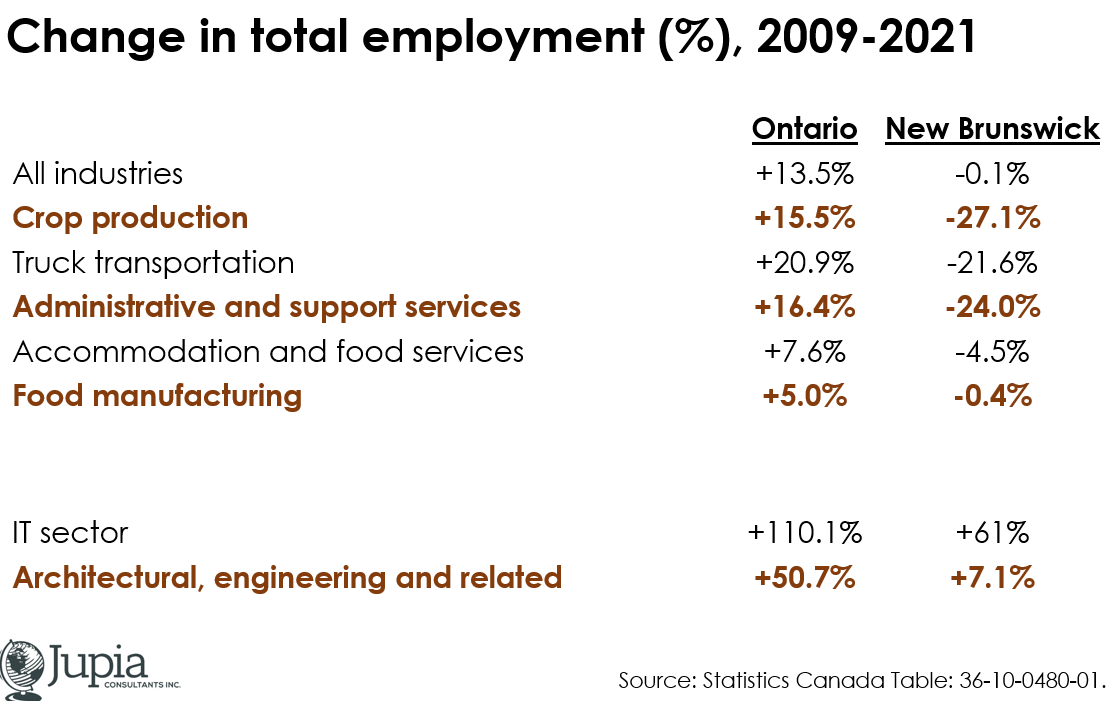What's the big idea?
I’ve always been a guy that used numbers to make a point. Almost every one of my Brunswick News columns going back 15+ years now are built around a specific data point.
When I started my career in the early 1990s I was hired to use numbers to make the case for companies to invest in New Brunswick. I remember pouring through Census data at the UNB library -all in paper form - hundreds and hundreds of pages of data - all to find a few nuggets of joy. New Brunswick had the lowest labour turnover among the 10 provinces. The number of days lost per year to absenteeism was 20% lower than the national average. The labour market participation rate was 10 percentage points below the national level meaning a surplus of labour awaiting companies looking for a place to set up a new factory.
A highlight from those years was someone in the Premier’s Office calling me looking for data points to put in the Premier’s State of the Province address. Imagine that. A 24 years old hearing quips that I pulled together being cited by the Premier of a Province.
Then I met the Premier along with a VP of UPS who told me he kept the business case document I wrote for UPS “under his pillow”. Pretty cool.
As I have aged, I realize that numbers are not enough. They can get people’s attention: “40% of our entrepreneurs are likely to retire within the next 10 years or so” or “the job vacancy rate in the Campbellton-Miramichi region is at a record high” but there has to be reason - some story - some big idea - that goes along with the numbers or they will just fizzle into air similar to the dopamine hit you get from an interesting TikTok video.
The big idea I have been pursuing now is “what kind of province do we want in 20 years”. I had an interesting and spirited conversation yesterday about immigration and was told we are going to have to decide what types of jobs we want in the province because we only have a limited number of immigrants that we can attract here. We don’t want ‘lower wage’ jobs here so let’s focus on ‘high wage’ jobs.
Really?
Apparently Ontario doesn’t have the same concern. Consider the following table (numbers again!):
Now, if you go back to the 1990s and early 2000s, New Brunswick was adding jobs in truck transportation and administrative services (call centres). Now we are shedding jobs in these two sectors at a serious rate and Ontario is adding jobs in these same two sectors. Guess who is working in these sectors? Immigrants.
Is this the province you want to live in? A province where important industries with growth potential and export revenue are in decline here and growing elsewhere all because of immigration policies?
I know we want productivity. We want to replace lower wage jobs with machines. Yadda. Yadda. Yadda. But until such time as this is a reality, New Brunswick should not be at a disadvantage to Ontario or anywhere else because of government policies.
It’s time for everyone - politicians, community leaders, business leaders - to look in the mirror and ask themselves what kind of province do they want to live in 10 and 20 years out.
If we want to live in a place that has a strong economy, a vibrant entrepreneurial sector, a tax base that can sustain high quality public services and communities across the province offering a high quality of life, there is work to be done.
Politicians love to say they don't care about their future legacy. Sure. And many times it shows.
Now is the time for politicians and the rest of us to think about our legacy.
The future is bright but there are things we need to do now to make it happen.


I can tell you that in Sussex, we went through a soul searching exercise after the closure of the mine and the loss of “good jobs” and the community decided to focus on growth in three areas that include Agrifood and Agriculture, Tourism/Arts and Culture, and Renewable Energy. Ask business owners in those sectors if NBs immigration policy is helping right now. The answer is no! The federal Atlantic Immigration Program is flexible enough to fill their job vacancies and the province put all kinds of additional conditions in place. Not only has NB government policy put us at a disadvantage to Ontario, we are now at a disadvantage to the rest of the Atlantic provinces. Why can’t this government admit that we need front line workers and use the tools available to fix it?